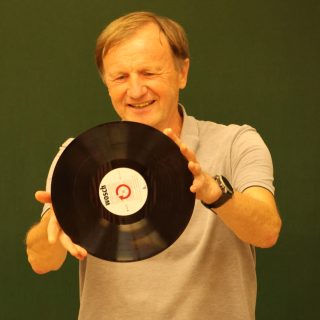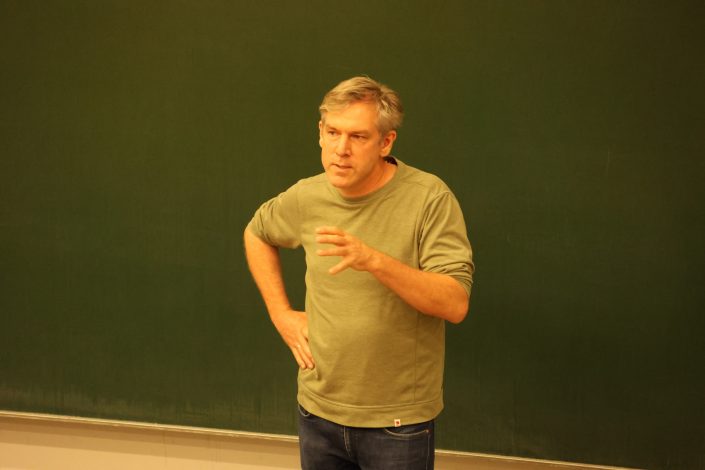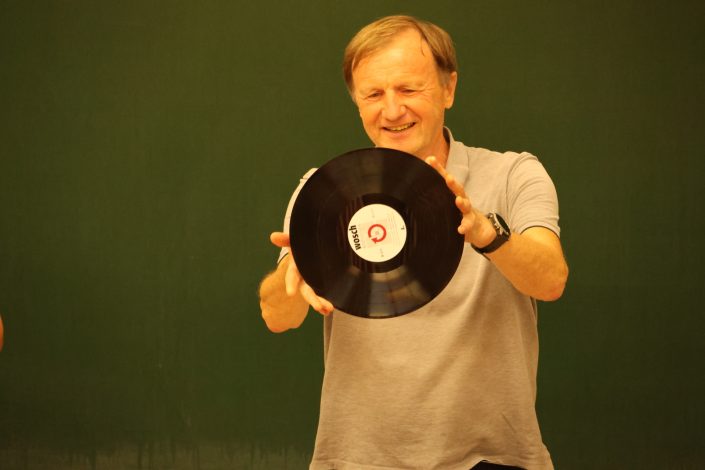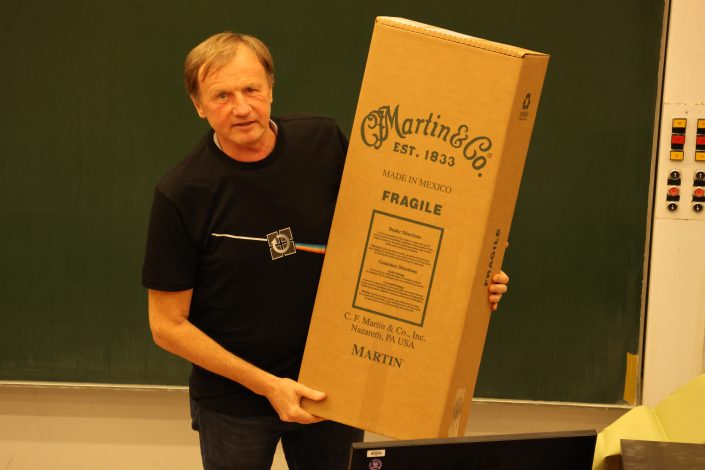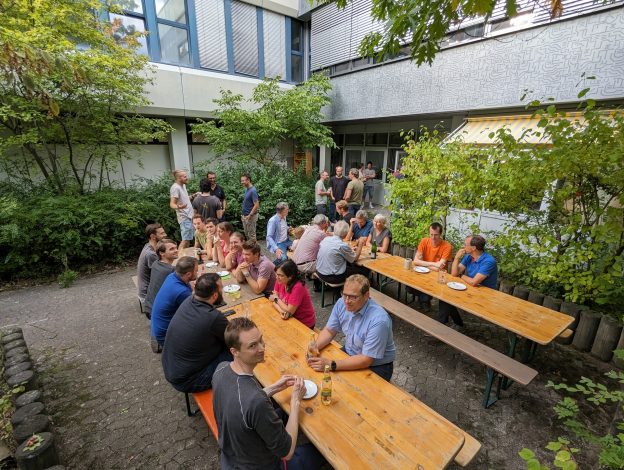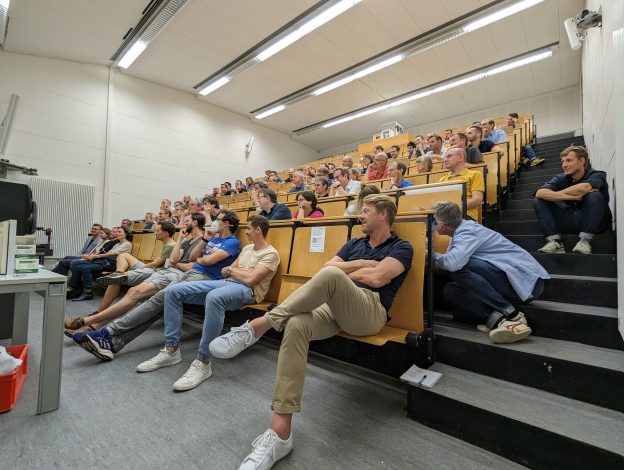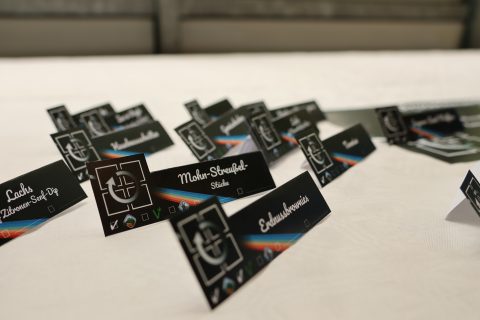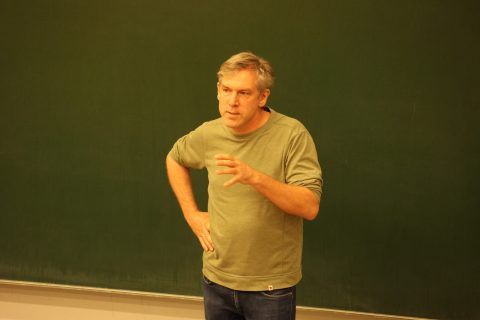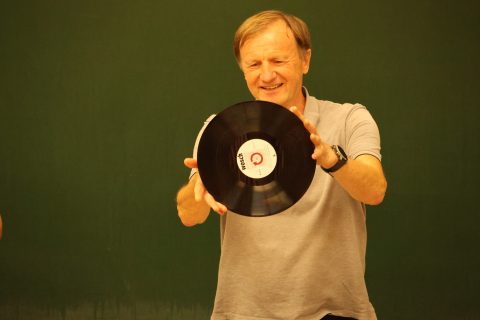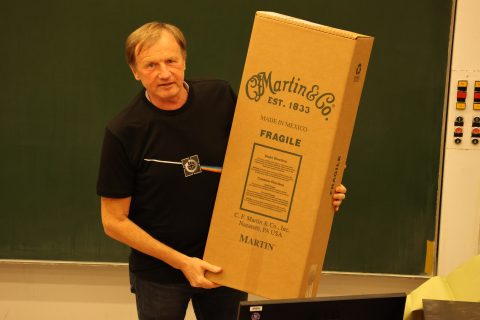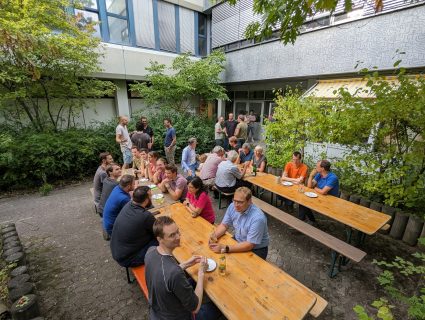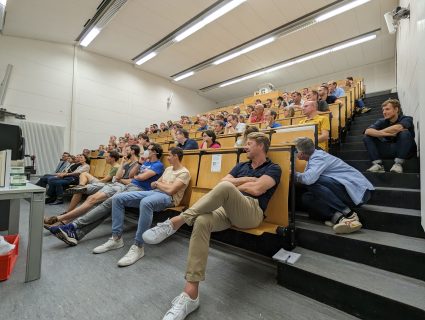Retirement of Prof. Dr. Wolfgang Schröder-Preikschat
After more than 20 years as a full professor at the Chair of Computer Science 4 at FAU, Professor Dr.-Ing. Wolfgang Schröder-Preikschat, called wosch, will begin his retirement on October 1.
His career began at TU Berlin, where he studied computer science from 1975 to 1981, and earned his doctorate in the same subject in 1987 and his habilitation in 1994. From 1986 to 1995, he worked at GMD/FhG FIRST in Berlin on the PEACE (Process Execution And Communication Environment) microkernel operating system as part of the SUPRENUM project. He was subsequently appointed Professor of Computer Networks and Operating Systems at the University of Potsdam, and two years later Professor of Operating Systems and Distributed Systems at the Otto von Guericke University Magdeburg before becoming Professor of Distributed Systems and Operating Systems in Erlangen in 2002.
There he initiated and orchestrated a large number of research projects, which, in addition to the areas already evident in the chair title, included real-time systems as well as energy-aware systems. For more than half of his time he also worked as a subproject leader for the Collaborative Research Center/Transregio 89 “Invasive Computing” (InvasIC), before the project came to an end in 2022 after 12 years. He continues to be active with further projects in the area of non-volatile memories (NEON and PAVE) as well as power-saving networked systems (ResPECT).
These externally funded projects that he has acquired have also enabled the chair to be well staffed, which has also had an impact on teaching: In addition to basic courses for computer science as well as non-specialist courses, there have been a large number of elective courses that offer an in-depth look at all of the chair’s research areas. Common to them, in addition to a regular adaptation to the state of the art, was the accompaniment of an extensive and demanding exercise program in which students received individual feedback on their craft. That this effort was appreciated was also evident in the evaluations, which regularly landed in the top lists of the technical faculty. Students will also remember the glossary, in which technical terms are discussed in detail using their German-language equivalents and which achieved a certain fame among the students.
Under his aegis, there were more than 70 research assistants at the chair, which also leaves him with a considerable academic pedigree, with chairs at many locations (such as Bochum, Dortmund and Hannover). This was also evident on Friday, September 29, when many of his former doctoral students and companions returned to their alma mater to celebrate his farewell in convivial company.
We wish wosch all the best on his (formal) retirement, knowing that we can nevertheless continue to count on his support!
